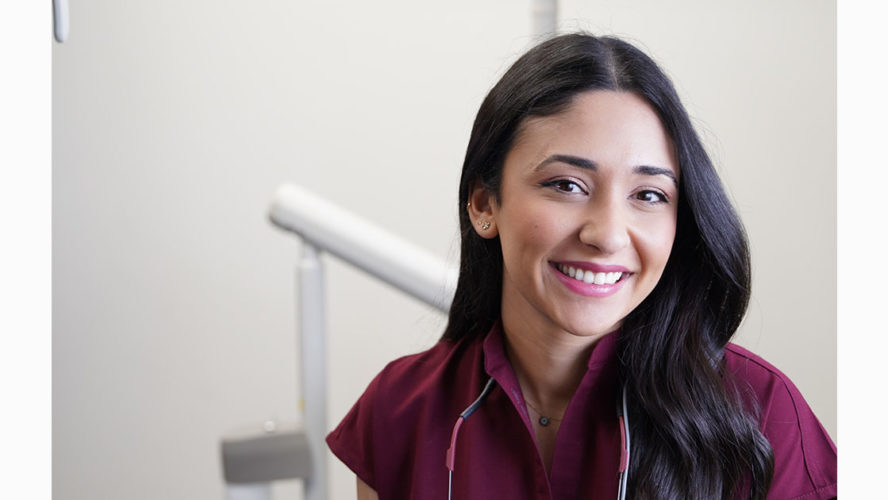
Dr. Zeina Naous
Canadian Dentist
Canadians have a lot of misconceptions about proper dental care, and it’s important to set the record straight.

Can flossing cause gaps between teeth?
Contrary to common belief, flossing does not widen the gaps between your teeth. The observed widening is due to the removal of tartar and not an actual change in the size of the gaps.
Improper flossing, like cutting through gum tissue, forcing floss between your teeth, or rubbing the string too forcefully on the tooth surface, can cause the gums to recede and create or widen gaps. It’s recommended to follow your hygienist’s or dentist’s advice for proper flossing technique.

Should you brush your teeth immediately after every meal?
We were all taught to brush our teeth right after we eat, when in fact teeth are at their most vulnerable state after a meal or snack. The acidity in your mouth is at its highest right after eating or drinking and brushing immediately after can spread these acids, causing the protective enamel layer of teeth to erode and eventually weakening your teeth.
It’s suggested that you rinse with water after eating, and wait 30 to 60 minutes before brushing. Ideally, you should be brushing at least twice a day — once in the morning and once right before going to bed.

Should wisdom teeth always be removed?
Wisdom teeth may not need to be removed all the time, such as in cases when they’re healthy and appropriately erupted and positioned. Also, healthy wisdom teeth should bite properly against their opposing teeth and be easily accessed to be a part of your daily hygiene practices. However, problems can arise from wisdom teeth that don’t have room to grow properly and that are causing problems such as pain, repeated infection of soft tissue, cysts, tumours, damage to nearby teeth, gum disease, and extensive tooth decay.
The decision to remove wisdom teeth is not always clear, which is why you should talk to your dentist to see what’s best for your situation.

Should you brush harder to clean your teeth better?
I see this too often, when people try to use a hard-bristled toothbrush or use more force while brushing to get cleaner or whiter teeth. Brushing too hard can wear down the enamel, which is the outer layer of teeth that protects them from decay.
Losing the enamel layer can lead to abrasion, making your teeth weaker and more sensitive. Gums can also recede from forceful brushing that exposes the root, leading to sensitivity, aesthetic problems, and root decay.
This is why using a soft-bristled toothbrush alongside flossing gently without applying too much force is recommended.

Do you have to take care of primary teeth since they fall out?
People mistakenly believe that baby teeth are less important because they eventually fall out. However, these temporary teeth play an important role that can affect oral health as we age.
Baby teeth help with chewing, nutrition, and speech development, and also reserve a space for the anticipated permanent teeth replacing them. Since baby teeth are smaller, they’re more vulnerable to cavities and if left untreated, can lead to infection and potential damage to the underlying tooth. Losing baby teeth at a premature stage can lead to the improper eruption of the permanent teeth due to the loss of the dedicated growth space.
It’s important to encourage proper daily oral hygiene habits at a young age to carry on and maintain through adulthood.


